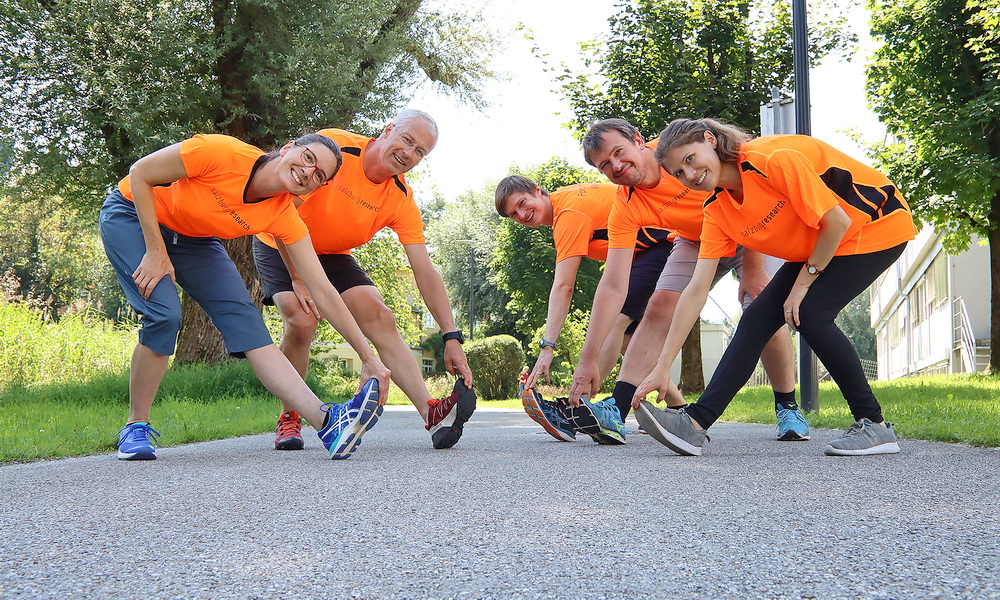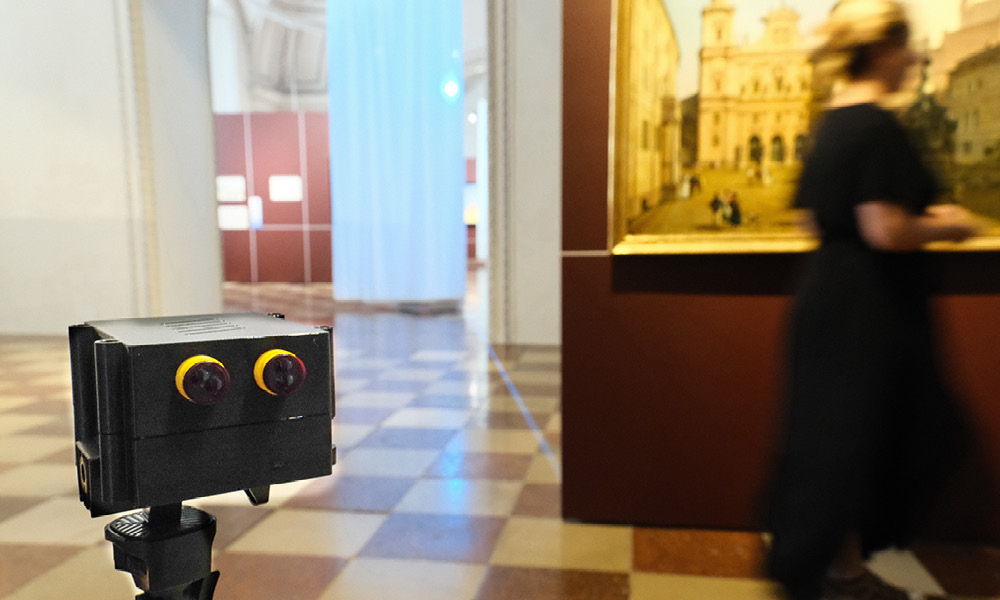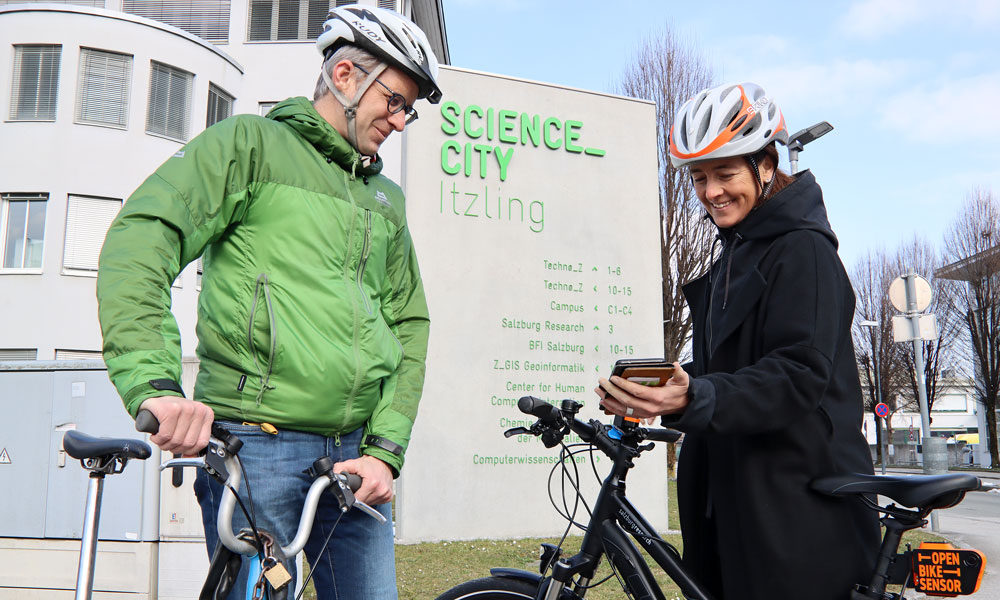
Nudges for more sustainable mobility
Salzburg Research, together with the University of Salzburg, Trafficon and Techno-Z, wants to motivate more sustainable mobility in Science City Itzling. The goal: As many people as possible who work here come to work by bicycle, public transport or on foot and not by car.
“The public transport takes longer than your car? Use the time for yourself, read a book, learn a new language or work off some mail!”
Kleine Stupser wie dieser, über den Tag in einer App serviert, sollen im Frühling 2023 in der Science City Itzling zu mehr nachhaltiger und aktiver Mobilität anregen.
Little nudges like this, served up throughout the day in an app, are intended to encourage more sustainable and active mobility in Science City Itzling in spring 2023.
In the scientific study “Science City Aktiv Mobil” as part of the international research project „DyMoN“, employees at Science City Itzling were invited to test these incentives – so-called “nudges”. The incentives are embedded in an app for workplace health promotion in the form of notifications for two months and evaluated.
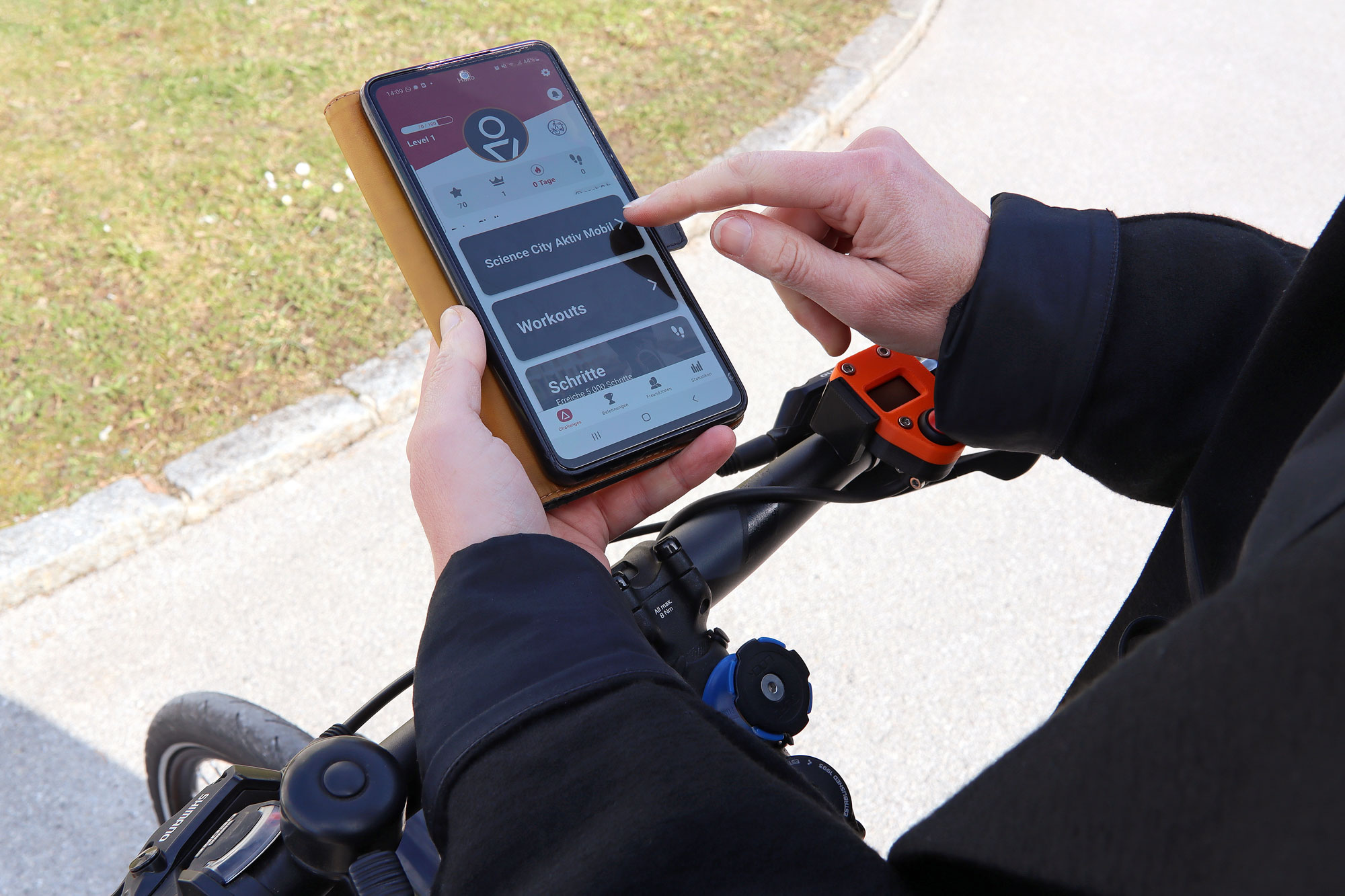
We are not made of sugar after all!
Contextual information, such as data on the current traffic situation and the weather, will also be included in the motivating app notifications and should make the incentives even more effective. After all, with the right equipment, it’s easy to walk or cycle even in rainy weather. With this data-based approach, we want to expand the state of research in the field of behavioural economics and psychology in the mobility sector, while at the same time supporting the mobility revolution and inspiring decision-makers.
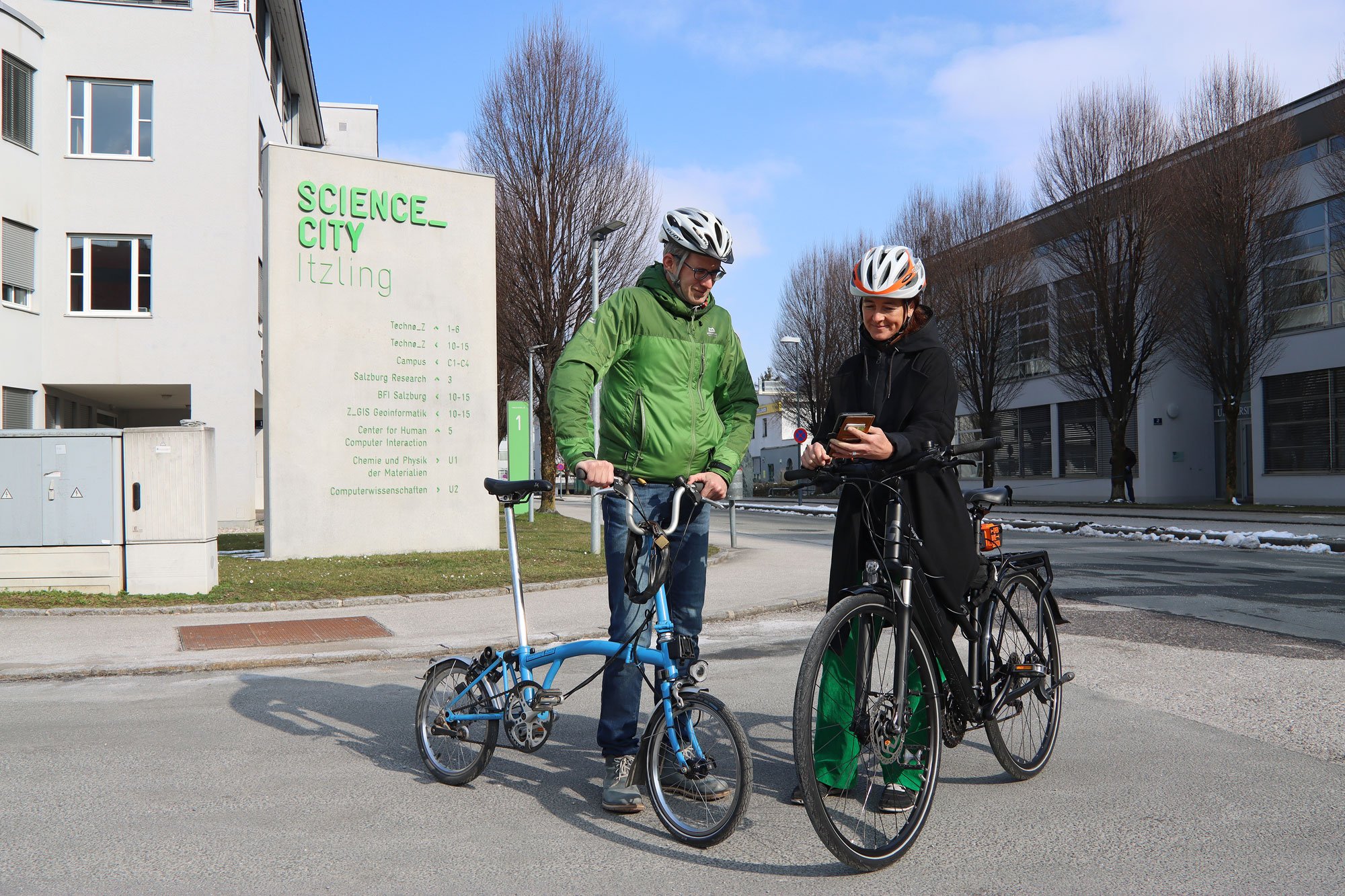
Nudges: Small incentives, big impact
“Nudging” is a method of influencing behaviour – but without the use of prohibitions, restrictions or economic incentives. Nudging draws on findings from behavioural economics and psychology and works, for example, by directing attention, changing the environment or through social influences. Nudges can also be used in the field of mobility behaviour.
Handbook on Nudging for Active Mobility
The results will be used, among other things, to produce a handbook and a webinar series on the topic of effective nudging for active mobility. Many cities want to promote sustainable mobility in order to reduce CO2 emissions, improve air quality, reduce noise and thus make the city a more liveable place. To achieve this, cities can resort to “hard” measures such as bans and legislation, but they can also use “soft” measures such as behavioural change strategies.
Salzburg Research is leading both the overall project and the study “Science City Aktiv Mobil”. The research institute is responsible for the survey of user needs and the design and compilation of the digital nudging methods. DyMoN is supported by the JPI Urban Europe programme (ERA-NET Cofund Urban Accessibility and Connectivity).
More information in the press release (in German): Studie: Stupser für mehr nachhaltige Mobilität

